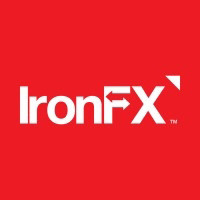Which forex account should a retail forex trader choose? There are various types of trading accounts depending on the deposit amounts and functionality. Once a novice trader decides to open forex account for the first time, the most common decision what to start with would be a demo account. Demo accounts can be found with all the top brokers currently active on the forex market. This type of an account is extremely popular, as it is an easy and accessible means to get acquainted with currency trading on the practical side and with no loss of monetary funds. Usually it happens only after some time that a trader tries his hand in trading on a demo account he seeks opening a real money (or “funded”) account.
There are three basic types of funded trading accounts – standard account, mini account and managed account. Naturally, each of these has its own advantages and disadvantages.
The factors that have to be taken into consideration when choosing the right type of a forex account include such parameters as a trader’s initial investment, day-by-day trading experience, and risk tolerance.
Standard Account
The standard forex account is the most typical and common type of an account. The minimal required balance to start trading on a standard account is usually $2,000; some brokers set it at a level of $5,000-$10,000. Standard trading accounts are recommended primarily to the traders with enough experience on the currency markets.
With this type account a trader has access to standard lots of currency worth $100,000 each. Due to the rules of margin and leverage this means trading a standard lot with factually not $100k, but $1k for a standard lot (the ratio of 1:100). Among the advantages of having a standard account is a broader range of services offered by brokers to standard account owners. As for the potential earnings, the daily gain can amount to $1,000 once a position moves in favor of a trader by 100 pips during the day and one pip is worth $10. However, once a position moves unfavorably for a trader by the same 100 pips during the day, it means same big losses for the trader’s funds, therefore it is strongly recommended that novice traders do not put their capitals at risk and do not open standard accounts shortly after they enter the forex market.
Mini Account
Among the most frequent types of funded accounts are mini accounts. Mini accounts are a great means to get used to the execution paradigm of a certain broker and to learn how to trade profitably. Mini accounts are similar to regular trading accounts; the key difference is that on mini accounts the currency is traded in 1/10 lots, that is, 10,000 instead of 100,000. This means that the initial deposits on mini accounts are lower; interestingly, it also brings to broader customization of risk management. The majority of mini accounts can be opened with as little as $250-$500. The leverage on mini accounts is up to 400:1.
The reverse side of a mini account is a 10-times lower reward compared to that of a standard account: standard account owner receives $10 gain for every pip of positive movement when trading $10,000; whereas the gains of a mini account owner in the same situation will mean earning of just $1.
The majority of forex brokerage firms that offer standard accounts also offer mini accounts. Mini account is a way to attract traders with lower trading experience and smaller capitalization.
Micro Account
Micro forex account, which is an even smaller type of an account (1/100 of the standard account), is an offer that can found at a number of key forex brokers. These accounts are designed primarily for traders with basic knowledge of forex. It is possible to open a micro account with a deposit as small as $25. Pip movements on micro accounts are worth only 10 cents per point.
Managed Account
In its turn, a managed forex account appears to be the best choice for a currency speculator unwilling to spend a lot of time studying market trends and to execute the trades personally. On such an account the funds belong to the trader (investor), but all the operational decisions are made by account managers who handle managed accounts the same way as stock brokers operate managed stock accounts. Account managers receive a monthly or yearly commission usually called ‘an account maintenance fee’. Most managed accounts require a minimum $2,000 initial investment.
Generally, there are two types of managed accounts, individual accounts and pooled funds. In the first case, the professional managers deal with each client individually; in the case of a pooled fund an individual investor’s capital is put into a trading fund together with the capitals of other investors. An investor interested in higher returns can consider a fund with a higher risk/reward ration, whereas traders looking for steady income should invest into more steady funds (but with lower risk/reward ratio). The minimal required amount for an individual account is much higher than for a pooled fund and most commonly amounts to $10,000.
Summing It All Up
The general recommendation for any trader and any account type would be to test the selected broker first. Most brokers do offer demo accounts and other testing options for new traders to get adjusted to trading exactly with this broker. And the second step is choosing the right real money account type: making the right choice is essential for rewarding and comfortable trading.
















